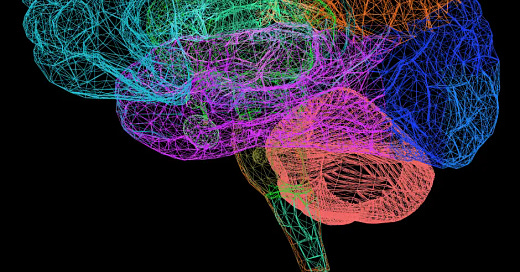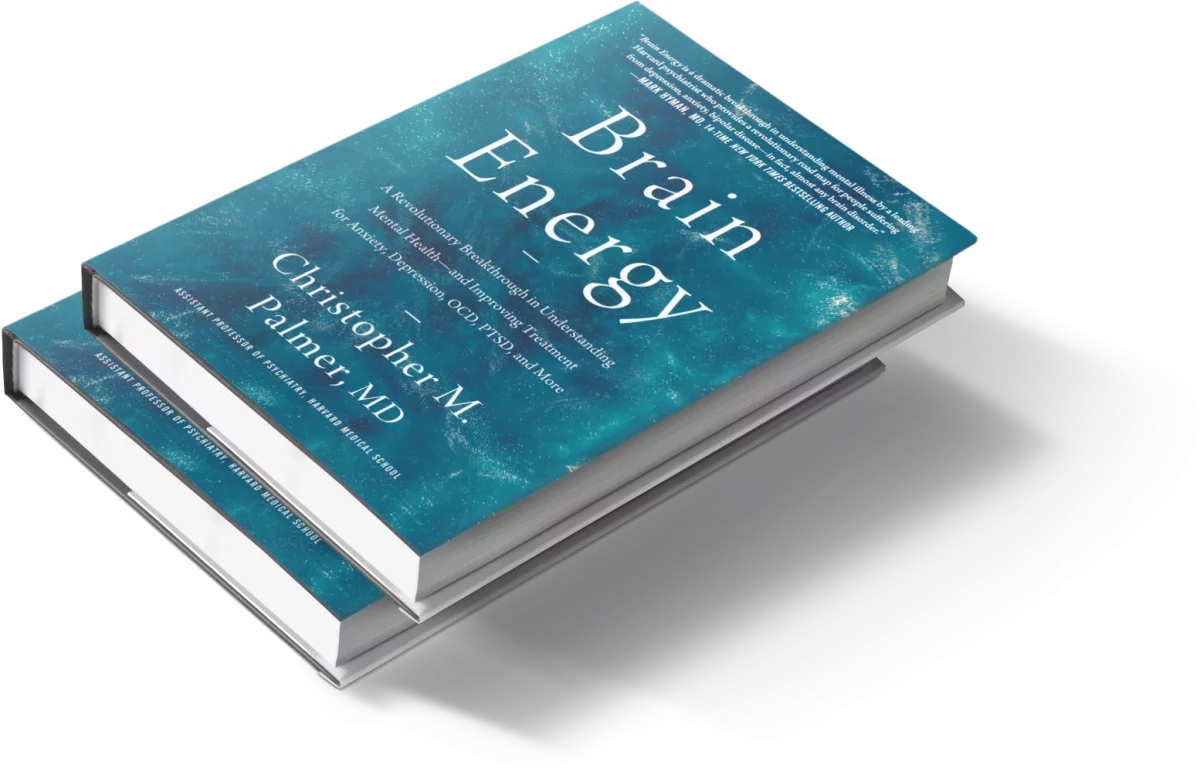The metabolic psychiatry movement
Experts are finding critical links between nutrition, metabolism, and mental illness.
As a global mental health crisis spirals out of control and standard treatments produce limited results, people are suffering in alarming numbers. Anxiety and depression grip hundreds of millions of our global population, while schizophrenia, bipolar, and eating disorders affect millions more. Prescription drugs and behavioral therapies are failing to help patients manage debilitating symptoms and understand the root causes of their illnesses.
Researchers who study metabolic health know there are vital connections between the food we eat and how our bodies function. A select few are asking an equally important question:
“How does nutrition affect the brain?”
Links between metabolism and mental health are the next frontier, and early research into this emerging field of metabolic psychiatry is promising.
In its May 2023 newsletter, the Metabolic Health Summit summarized the evidence like this:
Biological plausibility for a beneficial and stabilizing influence of ketones on the brain
Anecdotal evidence of mood improvements in people who have undergone a ketogenic diet
Observational evidence that risk factors for metabolic conditions are also risk factors for mental disorders
Clinical evidence for the effectiveness of the ketogenic diet in treating other neurological conditions, most notably epilepsy
Across the Senza community, an increasing number of people say they are doing keto in part for their mental wellbeing. In a recent poll, 23% of responses cited elevated mental clarity as a benefit of their keto lifestyle, while another 22% mentioned better moods. Eating a whole-foods keto diet helps to lower stress and brain fog, and awareness is growing for the roles of nutrition and metabolic dysfunction in illnesses such as severe anxiety and depression.
If you are ready to dive into this topic, we encourage you to start following these nine pioneers of the metabolic psychiatry movement. Get familiar with the timeline of therapeutic ketosis, starting with epilepsy research in the 1920s up to the first clinical pilot trial for bipolar and schizophrenia in 2018, and then check out the key studies below:
Metabolic psychiatry experts
Dr. Georgia Ede is a Harvard-trained, board-certified psychiatrist specializing in nutritional and metabolic psychiatry. She has held roles with Harvard University Health Services and as the psychiatrist for Smith College. She was among the earliest practitioners to focus on links between food and mood. Her 2018 video, Our Descent into Madness: Modern Diets and the Global Mental Health Crisis, exposed the links between the Standard American Diet, plant-based diets and mood disorders. She blogs at Diagnosis:Diet and recently launched a new training course for clinicians.
Dr. Albert Danan is a practicing psychiatrist at the University of Toulouse in France and the lead author on a new study that shows how serious mental illness improved on the ketogenic diet.
Dr. Chris Palmer is a Harvard psychiatrist and researcher working at the interface of metabolism and mental health. He is the author of Brain Energy: A Revolutionary Breakthrough in Understanding Mental Heath - and Improving Treatment for Anxiety, DepressionOCD, PTSD, and More. In the book, he outlines a framework for thinking about mental disorders as metabolic disorders of the brain. It is a must-read for anyone wanting to understand the connections between metabolic health and mental health.
Dr. Iain Campbell is a global health PhD who is running a pilot study of the ketogenic diet for bipolar disorder at the University of Edinburgh.
Dr. Ignacio Cuaranta is a clinical psychiatrist based in Argentina who works with clients on diet, movement, rest and stress to increase metabolic flexibility and overall health. He uses keto and intermittent fasting along with other strategies to help patients improve cognitive function, mood management, anxiety and stress-related issues.
Founded by Dr. Shebani Sethi, the Stanford Medicine Metabolic Psychiatry Clinic focuses on treating patients with both mental illness and metabolic disorders.
Nicole Laurent is a Licensed Mental Health Counselor who helps people use ketogenic dietary therapy as a treatment for mental illness and neurological issues. She posts resources and blogs on her website at mentalhealthketo.com.
Brendan Vermeire is a mental and metabolic health scientist and researcher, as well as a holistic health practitioner. He founded the Metabolic Solutions Institute for Functional Health and Fitness Practitioners to educate doctors, practitioners, and professionals. Follow him on Instagram at The Holistic Savage.
Journalist Robert Whitaker is editor of the online hub, Mad in America, and author of the 2002 book, Mad in America: Bad Science, Bad Medicine, and the Enduring Mistreatment of the Mentally Ill. In 2011, he wrote Anatomy of an Epidemic: Magic Bullets, Psychiatric Drugs, and the Astonishing Rise of Mental Illness.
Metabolic psychiatry research
New Study: Serious Mental Illness Improves on Ketogenic Diet
The Ketogenic Diet for Refractory Mental Illness: A Retrospective Analysis of 31 Inpatients
Robert Whitaker on Rethinking Mental Health in America, interview on the Sustainable Dish podcast
Ketosis and bipolar disorder: controlled analytic study of online reports







This is such an under respected topic. Nutrition is foundational for health. Good nutrition builds strong bones and strong muscles, making it harder to brake them. The same goes for mental health, cardiovascular health etc. the same goes for building a house; make a strong foundation, use quality builders and materials and you’ll have a strong house.
The majority of people I speak to really fail to connect the dots or grasp how significant this really is.
Indeed, it is not well understood, and yet so vitally important to find ways to communicate the facts broadly to give people a fighting chance of healing from chronic illness. Thank you so much for your sharing this comment!